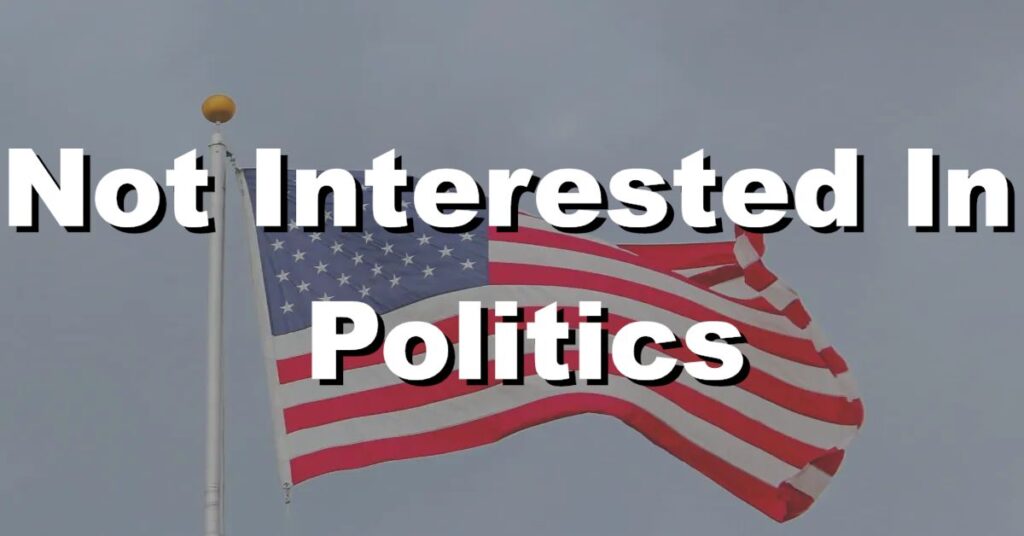While politics is an important aspect of our society, not everyone is interested in it. This blog post will examine whether it is acceptable to not be interested in politics, and what the implications of this might be for individuals and society as a whole.
The Importance of Political Awareness in a Democracy
Political awareness is essential for a functioning democracy. It allows citizens to understand the issues, policies, and candidates that shape their lives and communities. By being politically aware, individuals can make informed decisions when voting, engaging in public discussions, or advocating for causes they care about.
Political awareness fosters a sense of responsibility and empowerment, as it enables citizens to hold elected officials accountable and contribute to shaping the direction of their society. Moreover, political awareness promotes a more informed and engaged citizenry, which strengthens democratic institutions and ensures that the voices of the people are heard and represented.
Understanding the Impact of Political Apathy
Political apathy, or disinterest and lack of engagement in political affairs, can have significant consequences for a democracy. When individuals disengage from politics, they surrender their voice and agency in the decision-making processes that directly affect their lives. Political apathy can lead to a lack of accountability, as elected officials may feel less pressure to act in the best interest of their constituents.
It can also result in policies that do not reflect the needs and values of the population. Additionally, political apathy can perpetuate inequalities and social injustices, as marginalized communities may continue to be overlooked or underserved. Therefore, understanding the impact of political apathy is crucial in order to recognize its negative consequences and strive for increased political engagement.
The Consequences of Not Voting or Participating in Political Discourse
Not voting or participating in political discourse can have far-reaching consequences for individuals and society. When individuals refrain from voting, they relinquish their opportunity to influence the outcome of elections and shape the policies and leadership of their country.
It can lead to the underrepresentation of certain groups and perpetuate systemic biases. Furthermore, abstaining from political discourse means missing out on the opportunity to contribute to public debates, challenge prevailing narratives, and offer alternative perspectives. This lack of participation weakens democratic processes and limits the diversity of voices and ideas that should be heard.
By not engaging in political discourse, individuals may inadvertently allow their values and interests to be disregarded, hindering progress and hindering the pursuit of a more inclusive and equitable society.
The Relationship Between Political Ignorance and Social Injustice
Political ignorance, or a lack of knowledge and understanding of political issues and processes, can contribute to social injustice. When individuals are unaware of the political structures and systems that perpetuate inequalities, they may inadvertently support or perpetuate unfair policies.
Political ignorance can hinder efforts to address social injustices as it prevents individuals from fully grasping the root causes of these issues and participating in meaningful discussions and actions. Moreover, it can lead to the manipulation of public opinion and the consolidation of power by those who benefit from the status quo.
To combat social injustice, it is crucial to prioritize political education and foster an informed citizenry that can advocate for equality, challenge oppressive systems, and drive positive change.
How to Encourage Political Engagement without Forcing It
Encouraging political engagement requires creating an environment that fosters curiosity, open dialogue, and empowerment. Education plays a vital role in promoting political engagement, ensuring that individuals have access to accurate information and the skills to critically analyze political issues.
Encouraging diverse perspectives and providing platforms for discussion can also stimulate engagement, as it allows for the exchange of ideas and the development of informed opinions. Empowering individuals to take action, whether through volunteering, grassroots initiatives, or community involvement, helps build a sense of agency and efficacy.
It is important to respect individual choices and avoid forcing political engagement, instead focusing on providing opportunities for learning, involvement, and meaningful participation. By creating an inclusive and supportive environment, we can inspire individuals to engage with politics in a way that feels authentic and meaningful to them.
Conclusion
In conclusion, while it is understandable that some people may not be interested in politics, it is still important to recognize the impact that politics has on our lives and communities. Even if you choose not to engage in politics directly, being informed about current events and understanding the basics of the political system can help you make informed decisions and be an active citizen.

